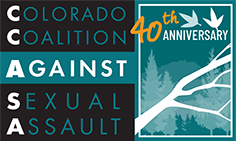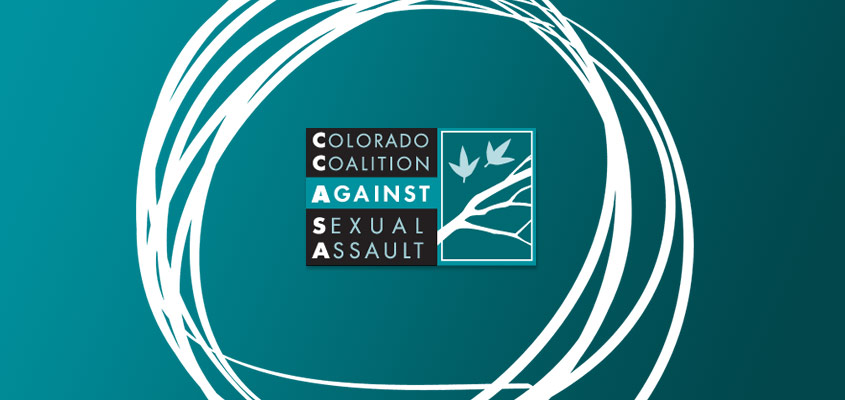FOR IMMEDIATE RELEASE
Contact: Raana Simmons, Policy Director
Colorado Coalition Against Sexual Assault (CCASA)
Phone: 303.625.9564
Email: raana@ccasa.org
Website: www.ccasa.org
All individuals quoted available for interviews upon request
New Bill Creates the Right Approach to Protect Teen Victims and Address Abusive Juvenile Sexting
Denver, Colorado, March 28, 2017 – Representative Pete Lee of El Paso County (D-18) introduced HB17-1302 Juvenile Sexting Crime, which creates a new low-level, class 2 misdemeanor for juveniles who engage in the crime of abusive teen sexting. The bill encourages the use of restorative justice and diversion programming options for charged juveniles and also tasks the School Safety Resource Center with creating educational materials to equip schools and students with necessary information to address and prevent sexting.
The existing laws in Colorado provide a prosecutor with only two options – charge a juvenile with the felony of sexual exploitation of a child (child pornography) or file no criminal charges. In 2015, hundreds of Cañon City High School students faced the very real possibility of being charged with felony child pornography for the distribution and/or possession of sexually explicit images of their peers in a large-scale incident that caught national headlines. Adjudication for these charges would have resulted in far-reaching legal consequences for the youth involved, including the requirement of lifetime sex offender registration.
When asked if he believed Colorado’s existing laws are sufficient in addressing the behavior of juvenile sexting, George Welsh, Cañon City Superintendent noted, “As an administrator in a school district impacted by a high profile teen sexting incident my opinion is district attorneys need a tool that lies somewhere between prosecuting a child with a felony for engaging in childlike behavior and doing absolutely nothing. We can’t continue applying analog laws in a digital world.”
Child pornography laws were designed to address adults exploiting vulnerable young children and were never intended to reach imprudent and irresponsible behavior by and among juveniles; yet, juveniles who engage in sexting behavior are prosecuted under these laws and subject to overly harsh penalties, including mandatory registration as a sex offender. Assistant Professor of Communication at the University of Colorado-Denver and author of Sexting Panic: Rethinking Criminalization, Privacy, and Consent (2015), Amy Hasinoff believes, “We need laws that are narrowly focused on privacy violations. The problem with current child pornography laws is that we’re charging victims and perpetrators with the same types of crimes. If someone who experiences a privacy violation can be charged with the same crime as the perpetrator, they’re unlikely to report that harm. All too often, victims of sexual violations like this are blamed and shamed, which makes the harm even worse.”
Raana Simmons, Policy Director for the Colorado Coalition Against Sexual Assault, agreed, “Victims know more than anyone what the consequences of sexting are and must not be barred access from support systems designed to help them recover from the deliberate violation of their privacy by charging them with a crime. To us, that logic sounds very similar to blaming a sexual assault victim for contributing to her own rape as a result of her choice in clothing. It’s the same victim-blaming beliefs we’ve been challenging for years but now in a digital age.”
HB17-1302 is the product of an extensive and engaged stakeholder process with more than 20 organizations already signed on in support of protecting teen victims and establishing a measured level of accountability for juveniles who engage in abusive sexting.
###

